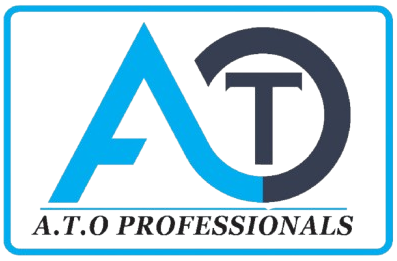When running a business, keeping your financial operations organized and compliant is crucial. Whether you’re a startup or a well-established company, hiring the right accountant can make a world of difference in managing your finances, ensuring compliance, and guiding your business towards growth. But how do you know which accountant is the right fit for your business? Here’s a guide to help you hire the ideal accountant for your specific needs.
1. Determine Your Business Needs
Before you begin searching for an accountant, it’s essential to assess your business’s accounting needs. Different businesses require different levels of accounting expertise. Are you looking for someone to handle day-to-day bookkeeping tasks, or do you need a professional to manage more complex financial responsibilities, such as tax planning, compliance, and financial forecasting?
Key considerations:
- Basic bookkeeping: For smaller businesses, you may only need help with tasks like recording transactions, managing payroll, and preparing invoices.
- Tax compliance and preparation: As your business grows, you’ll need an accountant to handle tax returns, ensure tax compliance, and offer strategic tax planning.
- Financial advisory and planning: If your business is expanding or facing complex financial decisions, an accountant with advisory skills can provide valuable insights and help you plan for the future.
2. Look for Relevant Experience
Once you’ve determined your accounting needs, it’s important to find an accountant who has relevant experience in your industry or business size. Different sectors have unique regulations and requirements, and accountants familiar with these nuances will add significant value.
What to check:
- Industry expertise: If your business operates in a highly regulated industry (like healthcare or manufacturing), look for an accountant with experience in that sector.
- Business size: A small business may need an accountant who understands the financial needs of startups, while a larger business may require someone experienced with complex financial structures and compliance issues.
3. Check Qualifications and Credentials
Not all accountants are created equal, and ensuring that the candidate has the right qualifications is key. Look for accountants who hold recognized certifications and qualifications, as these indicate a high level of expertise and professionalism.
Key qualifications to look for:
- Certified Public Accountant (CPA): CPAs are licensed professionals who have passed a rigorous exam and meet specific education and experience requirements. They are often qualified to handle both basic accounting tasks and more complex financial management and advisory services.
- Chartered Accountant (CA): Similar to CPAs, Chartered Accountants are qualified professionals with expertise in accounting, auditing, and financial management.
- Specialized certifications: Depending on your industry, you may need an accountant with specialized knowledge, such as a Certified Management Accountant (CMA) or Certified Internal Auditor (CIA).
4. Evaluate Their Technology Skills
In today’s digital age, accountants need to be comfortable working with various accounting software and financial management tools. The right accountant for your business should have the technical skills to use modern accounting systems, which streamline processes and improve accuracy.
Key technology considerations:
- Proficiency in accounting software: Ensure your accountant is familiar with the accounting software you use, such as QuickBooks, Xero, or Sage. If you don’t currently use any, consider hiring someone who can recommend and implement the right software for your business.
- Data security awareness: Financial data is sensitive, so it’s essential that your accountant understands how to keep your financial records safe using encryption and secure data storage.
5. Assess Communication and Collaboration Skills
Your accountant will likely be working closely with you, your management team, and possibly other departments. Strong communication skills are essential for ensuring that financial information is clearly conveyed and understood by everyone involved.
What to look for:
- Clarity: Can the accountant explain complex financial terms and reports in a way that’s easy to understand?
- Responsiveness: Is the accountant quick to respond to queries and proactive in keeping you informed of important financial issues?
- Collaborative approach: A good accountant should be able to work well with other members of your team, such as HR, legal, and operations.
6. Consider Their Strategic Value
A great accountant isn’t just focused on day-to-day number crunching. They can provide strategic insights to help you make informed business decisions. Look for someone who can analyze your financial data and offer advice on how to improve profitability, reduce costs, and manage risks.
Key strategic skills to evaluate:
- Financial forecasting: Can the accountant help you plan for the future by creating realistic budgets and forecasts?
- Risk management: Is the accountant proactive in identifying financial risks and suggesting ways to mitigate them?
- Growth planning: Can the accountant guide you through business expansion, mergers, or other major financial decisions?
7. Check References and Reviews
Before making your final decision, check the accountant’s references and look for reviews from previous clients. This will give you an idea of the accountant’s track record, professionalism, and ability to deliver results.
Questions to ask references:
- Was the accountant reliable and timely in completing tasks?
- Did they provide valuable advice that contributed to the growth or stability of the business?
- How was their communication and collaboration with the team?
8. Discuss Fees and Pricing
It’s important to understand how the accountant charges for their services. Some accountants charge by the hour, while others offer a flat monthly or annual rate. Make sure you’re clear on the pricing structure and what services are included, so there are no surprises down the line.
What to consider:
- Is the pricing structure flexible and suited to your budget?
- Does the accountant offer scalable services that can grow with your business?
Conclusion
Hiring the right accountant is a critical decision that can significantly impact your business’s success. By assessing your needs, checking qualifications, and evaluating their experience and communication skills, you can find an accountant who not only manages your financial operations but also becomes a valuable partner in driving your business forward.
At A.T.O Professionals, we offer comprehensive accounting and bookkeeping services tailored to your business’s unique needs. Our team of seasoned experts is committed to helping your business thrive by providing accurate, timely, and strategic financial insights. Contact us today to learn more about how we can support your business’s growth and success!




